By Uran Kalakulla
Part thirty-four
Nazism and communism
Memorie.al / Nazism lasted 12 years, while Stalinism lasted twice as long. In addition to many common characteristics, there are many differences between them. The hypocrisy and demagogy of Stalinism was of a more subtle nature, which was not based on a program that was openly barbaric, like Hitler’s, but on a socialist, progressive, scientific and popular ideology, in the eyes of the workers; an ideology that was like a convenient and comfortable curtain to lie to the working class, to lull the sharpness of intellectuals and rivals in the struggle for power.
One of the consequences of this peculiarity of Stalinism is that the entire Soviet people, its best, capable, hardworking and honest representatives, suffered the most terrible blow. At least 10-15 million Soviets lost their lives in the torture chambers of the KGB, martyred or executed, as well as in the gulag camps and others like them, camps where it was forbidden to correspond (in fact, they were prototypes of the Nazi death camps); in the mines in the ice of Norilsk and Vorkuta, where people died of cold, hunger, crushing work in countless construction sites, in the exploitation of forests, in the opening of canals and during transportation in leaded wagons, or in the flooded barns of the death ships.
Continued from the previous issue
I had always made a point of staying in the middle of the row. I even kept my friend, Professor George Komnin, close by, a short man, so badly skinned that he looked like a scarecrow. He had been a respected professor, a folklore specialist and a tireless lexicologist, an honest and determined patriot. But Asllan, even in this job, one day found a way out.
It was August and we were returning from the toilet to the room. At the elbow of the corridor, in front of the door of the cabin of his Excellency, Asllan Uka, his order stopped us in our tracks. Poor George hid behind my back and I had to face the great commander of the sloop:
– “Oh, you,” the high commander addressed me, with that virtuous speech, “why do you two always stand neither at the beginning nor at the end of the line? How is this work”?!
And I answered him:
– “Do you know how this work is, Mr. Asllan”?
– “Come on, speak!” – He deigned to give me permission to continue my explanation.
– “We are neither old nor young. Only the young have heels to go out in front, and the old, who do not have heels, are at the bottom. So, for us, there is no other choice but to take our place, right in the middle of the row”.
– “Hey,” said Llani, with that irony of his, as the Tyranians say, “I have heard that you are a fool, but I am more foolish than you. Without putting both of you in a dungeon, there is no way out. Even though it is August, I will water you and do it like a fool”, – his master raised his tone threateningly. But, finally, I don’t know how he came to his senses and solemnly ordered us:
– “Now, come on, get it and go straight to the room”!
And we hurried to get there as quickly as possible, out of concern that Captain Asllan would change his mind. Because, hasn’t it been said in time, that; “the priest jumps out of trouble”? A little more so for us, who were not priests at all?
Among the prison elders
Today, as I write these lines, I am an old man myself, but back then, if not yet a boy, I was a young man, so in addition to the spiritual side, at least I had the energy of age, the physical one, to face the sufferings of prison. What if I had been then the age I am today? Thinking like this, I now feel even more deeply the great torture of the prison elders. That the old man gets tired even at home, while the family tries to keep him with money, as we Albanians have always been accustomed to. What about in prison, especially in the communist prison, where a person was worth less than a street dog to the party and its security forces?
But when I came out of the dungeon and was taken to the old prison, I felt pain, among other things, when I saw a group of old men, who had been gathered in room no. 3. They had become no longer people, but ghosts, and apart from us prisoners, none of the command showed any care or even the slightest mercy for them. In that room, I remember very well that there were maybe 20 old men, very old, who, although they had spent many years in prison, had many others before them, probably on the verge of death!
And it was already known that when you died in prison, you were treated exactly like a stray animal, which the Municipal Police would pick up with a pitchfork, throw in the garbage truck and throw in some pit, wherever they could. So the fate of those old men was in some pit, that is, in some lost grave, graves that for 47 years of communist rule have been in most of the Albanian land, without a name or a mole. But, I’m not saying? Was this only the fate of the old men? Were young men or average men treated differently, if they had the bad luck to die in camps and prisons? Who among their relatives has been able to find their graves to this day?
In the old prison of Tirana, I remember very well one of the old men in particular, I think he was the oldest of them. They called him Gjetë Beci, from the mountains of Mirdita. When I asked him about his age, comparing it to Albanian historical events, it turned out that he must have been, at that time, around ninety. Well, if that old man had killed the devil, could he have been kept in prison? Look at the “humanism” of the communists! And I don’t know how that poor old man got on, because when they took me out of that prison, after a few months, I left him there, along with many of his emaciated friends, rotting alive in the cement on the ground.
– “How are you, Gjetë”? – I would say to him when I met him in the courtyard of that black place, during the ventilation hours, as he sat in a corner, to warm himself somehow under the pale rays of the January sun in the frozen courtyard, dressed in those miserable clothes of his and shivering from the cold. And he, sticking out his chest, a chest that was shaped like a willow basket, while tears flowed from his reddened eyes, answered me with that old highlander voice of his, a voice that seemed to come from a mountain cave:
– “Shelik, shelik, or mek”! (Meaning: Çelik, Çelik, or mik).
Even in these words, the unyielding pride of the mountaineer was dictated. Gjeta had been among the distinguished brave men and had stood up to the foreign enemy with a rifle in his hand. And the same was true of the communists, when they had also come from his side to violate the norms of the “Mountain Canon”. That is why Gjeta Beci was in political prison, whose soul was enlightened where he fell!
Osman Vatoci was an old man who had passed seventy-five years old. He was from the Gjakova Highlands and had fought side by side with Isa Boletini and Bajram Curri. And he had been among the first houses of that area, generous houses, one of those that have been the cradle of patriotism and resistance against the Turks and the Albanians, for centuries, generation after generation. And now he was in prison because he had given bread to a fugitive who had knocked on his door one winter night.
Osman Vatoci was a proud old man, truly handsome, but still strong, likes a mountain Albanian. With a face as red as an Albanian, with sharp eyes like an Albanian, with that Kosovar cap on his head, he always held his head high and it seemed that he didn’t care! His words were few, but loaded with the wisdom of the people, so much so that you wanted to listen to him and learn from him. It seemed that no word, not even a gesture or movement of that proud old man, was in vain, without a meaning. It was a pleasure to watch him walk, despite his advanced age, as light as a mountain deer, with his gaze focused ahead, as if he wanted to investigate dangerous paths or possible ambushes.
It was also a pleasure to see him rolling his cigarette or, inhaling his mountain flower, as if he were performing some ceremonial, ritual act. Surprisingly, although he was quite reserved with the people around him, he was close to me and liked to talk. Maybe because I was the only Tosk who knew how to speak his dialect, or for some reason that I could never figure out. And I, taking advantage of such an attitude, often sat with him, in some corner of the camp yard, spread out on a blanket, just like that, and exchanging a cigarette, we started talking, either about historical events in which he had participated, or about the customs and way of life of his past and his entire side. And that wise old man spoke to me openly, often with criticism about his past lifestyle:
– “Oh, my dear, I swear to God, we haven’t had everything exactly as we wanted. My family had plenty of land, but in vain, because we didn’t use all that we had. If we had it today, that one-tenth of it had turned out to be too much for us, we would have worked it and farmed it for days to get nothing…”! I parted from him with regret when they took me from the camp and sent me to the Burrel prison and I never heard what happened to that wise and honorable old man.
Karafil Kalaci was the same age as Osman Vatoc and he was in prison for a very special story, as I will tell you below, and precisely for the agitation and propaganda he had done…! Who do you mean? With his cooperative ox! Uncle Karafili, as everyone called him, was a Cham, I think from the Paramithi side, expelled like thousands and thousands of other compatriots, from 1944, from his fatherland. He was a short old man, usually silent, and the despair was read as soon as you looked at that face of his, where both the honorable past and patriotism stood out clearly.
But if you managed to gain his trust, then he would open up and pour out, in his pure Cham speech, all the sorrows of his wounded heart. His main dramas were two: the centuries-old injustice of the Greeks towards him and his fellow countrymen, and that of his arrest. When he spoke of the Greek, it was like a believer speaking of the “faraway one”. He cursed him as a being from hell, with hatred and emphasis, in his characteristic speech:
– “Oh, my friend, if you knew what we have taken from the Greek, it would make your flesh stand on end and your hair stand on end”!
– “I heard, Uncle Karafil, that your masters put you in prison for nothing”?
The poor old man sighed deeply once and, shaking his head, replied: – “Oh, this is my job, it is laughable and ridiculous, I am even ashamed to tell you”.
– “Come on, Uncle Karafil, tell me, its okay, I understand you well”, – I urged him. And the old man told me:
– “I was with all my children in a village in Elbasan, since the time the Greeks drove us out with a double yoke, with Zerva in the herd. And I had a house and a piece of land, a few sheep and only one ox, which I kept with great care. But it came to pass that they also put me in the corporatist company, like the whole world. I felt sorry for nothing, but for the only ox, which I loved as if I had my own son. And one day, while mowing the grass, I saw the ox tied in a fallow field behind a thorn. I left my work and went up to it. And what did I see? My ox had become skin and bone! I took it by the neck and spoke to it as if it were my son:
– Oh, my black ox, as your neck has become, so has my heart! And tears flowed from my eyes. It seems that behind that damned thorn, there is a spy hiding, who as soon as he heard my talk, he told me off to the village operative. And so, that’s how I came to where I am. And the investigator made fun of me, telling me that the ox was also with them and had betrayed me! Why do you believe this thing?
– “How long did they sentence you for the ox’s work?”
– “Seven good years, you fool! Once the Greek sentenced me, and now the Albanian. How is this thing?”
– “The Albanian didn’t sentence you, but the traitor, Uncle Karafil,” I replied. The poor old man had a stomach attack in prison. As usual, the command sent him to the hospital late. And the poor old man died there. And his body? Of course it ended up in those hospital surgical bins, where they throw the remains of the dismembered bodies of the corpses that are used to teach anatomy to medical students. This is the tragic fate of the poor old Cham!
I wrote a poem about the poor old man Karafili in prison, which I published in 1995 with the title; “Verses in chains”, a poem about the drama of this poor old man, a drama that turned into a tragedy.
Ndreca was from Mirdita. He was a man approaching sixty, tall and thin from the hard work he did and from the fact that he never filled his stomach with bread, because, no matter how hard he worked, the poor man did not spend the little money he was given for all that work, to buy any food, but kept it intact in his pocketbook so that, when he got out, he could help his family. It seems that he really knew the plight of the house, since no one brought him anything when they came to visit. She had left a bunch of small calamari at home, and the poor woman didn’t know which mouth to feed first, the children’s or the imprisoned husband’s.
I don’t know why Ndreca was sentenced and how much. I only know that when we were together in the Rubik prison camp, he had already served 19 years in prison. I didn’t know because I wasn’t friends, or even acquainted with Ndreca, but what I’m telling you, I got from his friends. I didn’t know that Ndreca was always silent and after work; how he ate that piece of bread with the rind of the common camp kettle, sat in a corner of the shed where we slept and with his çifteli in his hand, he would take it easy with his songs, I don’t know, of bravery or sadness! And maybe he could have even made those songs up himself?!
His friends used to say that; Ndreca, from 19 years of continuous work in all those prison camps, from the South to the North of Albania, in reclamation canals, in draining swamps, in building factories and plants, and so on, had managed to accumulate, with constant hunger, some 30,000 old ALL.
And when, finally, he got out of prison, with that ALL he bought a cow, which, although he was in a mountain cooperative in his village, after work he tried to graze on the mountain pastures, away from the meadows and lands of the cooperative, in order to be able to provide a spoonful of milk for his family. But one day, not long after he had bought the cow, this unfortunate woman had fallen into a ditch and was torn to pieces, at the bottom of an abyss, doing, along with herself, piece by piece, 19 years of forced labor in the desert Ndreca and the hope of a spoonful of milk for his children.
I met Goni Treske in the Elbasan prison camp and then we became closer in the Burrel prison, when shortly after I had been taken there, they brought a group of old men from that
Prison camp, who were no longer able to work, to the very room no. 1, where I was at the time. And Goni was assigned a place, fortunately, right next to me. At that time, Goni had already passed the age of sixty-five, but, although it was the third time he had been in prison, since 1945, he was still well and his mind was sharp. Only, inevitably, the signs of fatigue and premature old age were clearly visible. His hair had fallen out and only on the side of his head was a few rare red hairs left, like copper wire, and around his blue eyes, the signs of the great hardships he had endured were visible.
Goni was from one of the most respected families in Korça. His parents had only had that one son and as an only child they had raised him with all the comforts. His father had been a merchant, and he had sent his son to finish the Commercial School in Corfu. There Goni had learned not only finance, but also Greek and French, as a second language. But neither commerce nor any other craft or culture had strongly attached itself to Goni’s soul, because he had preferred to learn the culture and philosophy of practical life. Thus, in a way, he had become somewhat of an Epicurean, where in addition to the honesty induced by his character, he had been strongly linked to hedonism, where the taste for female beauty had taken first place.
But Goni was not one of those villains who cling to women like market dogs to bitches, because above all, he was a true gentleman and the taste for the gallant life had not at all destroyed his sense of dignity and nobility. And above all, the strong sense of citizenship, especially of Albanianism. And for these last three, I loved him, respected him and had become very close in friendship with him. Or he did not have a fluent speech, with that korçarça of his, as classical as it is elegant. Or he was not even eloquent.
If he had had literary inclinations and written his stories that were all true events, surely Goni Treska would have left an indelible mark on Albanian literature, especially in the narrative with character, both gallant and why not historical. That Goni had been a witness and sometimes even the protagonist of events of historical value for today. For example, he had known Zai Fundo, Koço Tashko, Koçi Xoxe, and many of those of the Korça Communist Group closely, but of course without having anything in common with them, on the contrary, being in open opposition. He had also known many others from the history of our country, especially from the Korça district, such as Themistokli Gërmenji, Mihal Grameno, and so on. But he had also known Enver Hoxha in Korça, when he was a high school student and a contract teacher. And he knew him so well that when we were walking in the prison yard in Burrel, all of a sudden, he would touch his forehead with his hand, so that I was worried that he had received some bad news from the family. But he would answer me:
– “No, thank you, I have no bad news from the family, but when I think about who we have on our heads and who governs our country today, I feel like screaming with rage”! – “But why, Goni, how did you know Enver Hoxha”? / Memorie.al




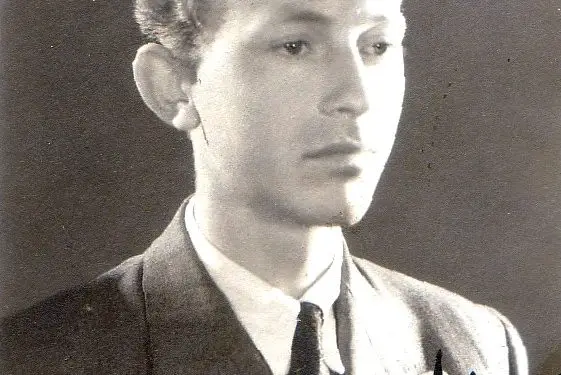
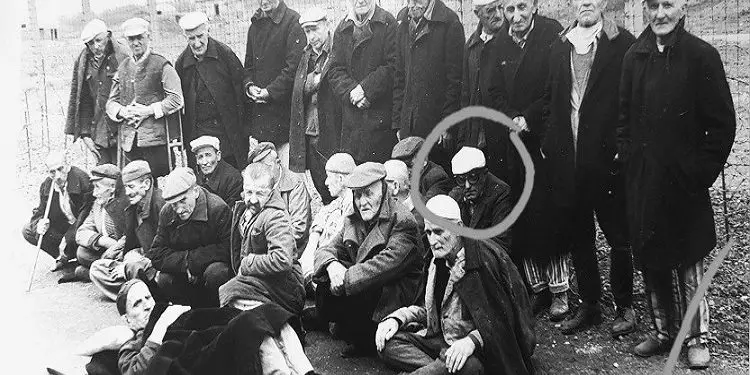
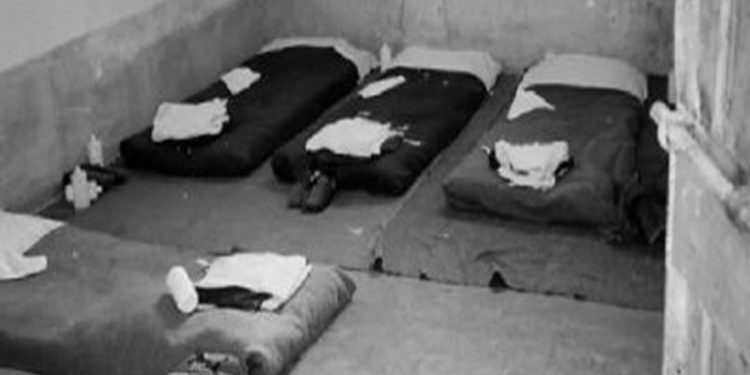
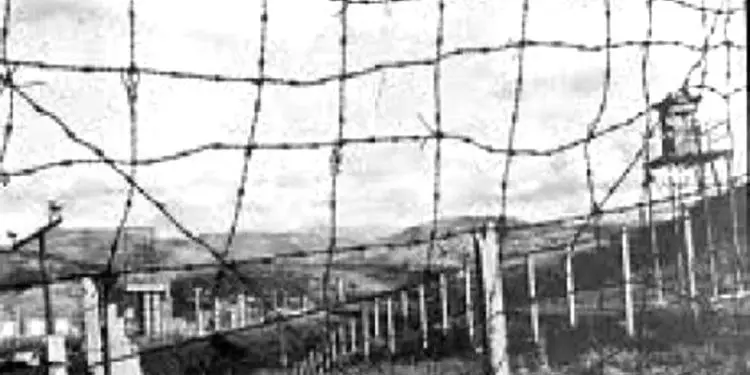
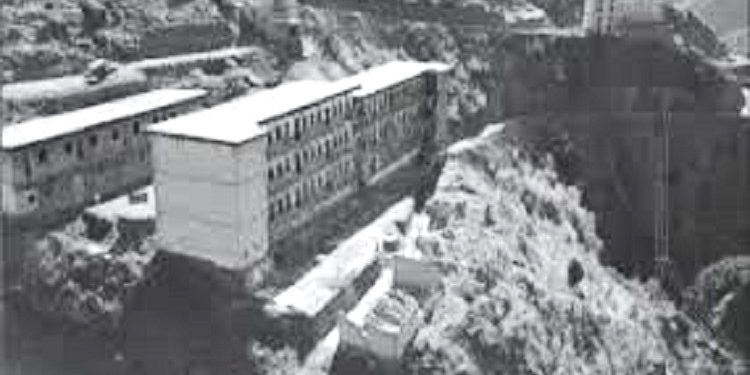
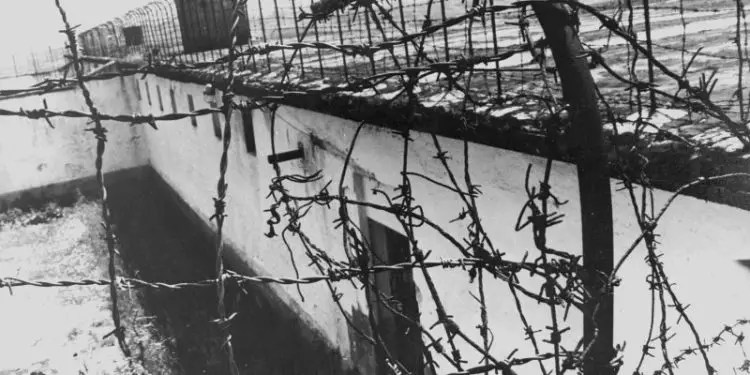
![“The ensemble, led by saxophonist M. Murthi, violinist M. Tare, [with] S. Reka on accordion and piano, [and] saxophonist S. Selmani, were…”/ The unknown history of the “Dajti” orchestra during the communist regime.](https://memorie.al/wp-content/uploads/2026/02/admin-ajax-3-350x250.jpg)
![“In an attempt to rescue one another, 10 workers were poisoned, but besides the brigadier, [another] 6 also died…”/ The secret document of June 11, 1979, is revealed, regarding the deaths of 6 employees at the Metallurgy Plant.](https://memorie.al/wp-content/uploads/2026/02/maxresdefault-350x250.jpg)




